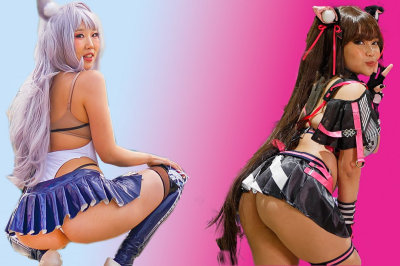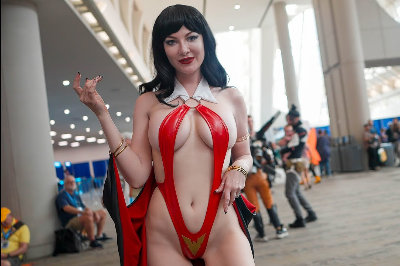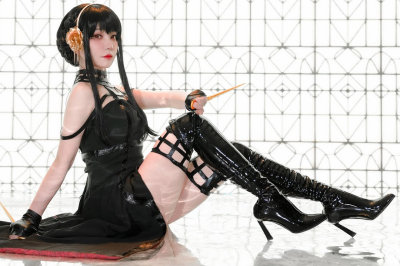THE MOTORCYCLE DIARIES - Q&A with GAEL GARCIA BERNAL
Che Guevara obviously sought to unite Latin America. Is a sense of Latin American identity important to you?
Well, for me, yes, because it's where I come from. It's my roots. It's where everything comes from. But I feel part of the land, not part of any particular country. But in Mexico and Latin America, we have a vacuum of identity... because of people coming from all over the world to live there and indigenous people already living there. A link needs to be found - there's a huge void that exists and a bridge over it hasn't been constructed.
When you talk about 'the land', are you an environmentalist?
I don't consider myself anything. I'm not environmentalist or a global activist or anything like that. When I talk about the land, there's a problem of semiotics: we understand the word very differently. I refer more to the indigenous sense of the word. More like a territory and a place where you work and live and do everything.
Are political methods necessary to bridge the void in Latin America?
An authentic political structure, I think. An authentic economic structure, as well, that obeys the laws of the land. Not copying European-type systems that don't apply to the land. When I say 'European', I also mean the United States. Indigenous culture doesn't obey the rules of competitiveness. It's not about exploiting the land. It's not about making it 'Grow faster! Grow faster!' It respects the natural cycle. I think nowadays Mexico and Latin America are really fucked up because they need to respond to the laws of what the global economy says. They have to be competitive and aggressively productive. If they were rich, if they were countries that had more infrastructure and had more money to make their decisions heard, things might be different.
Latin American cinema seems very strong though.
Perhaps in terms of what we talk about, the themes and the filming style, but surely not industry-wise. It's very fragmented and pathetic. Mexico, for example, makes a lot of box-office money but at the same time is one of the unfairest countries for any producer to make a movie there. It's a good thing for Hollywood to film in Mexico, because they get cheap labour and really technically talented people. But for a Mexican producer, it's very hard to make a film, because for us, the prices are comparatively high.
You're the highest profile actor working in the new wave of Latin American films. Do you feel a sense of responsibility as the figurehead of the movement?
I feel a responsibility not for the movement, but only with myself. I want to do things I like and fortunately, the things I like had to do with the types of films that are being made. So in that sense I feel a strong responsibility. And, yes, on a more practical level, I feel a sense of responsibility with Latin America, be it cinema or be it whatever... I support the Brazilian football team, whoever it plays with, except Mexico, of course [laughs]. It's my last resort to make everyone feel good, because growing up in Mexico, perhaps my only dream is to win the World Cup one day. It's very far away, but let me dream, let me dream...
If you weren't an actor, what would you be?
Well, I decided to be an actor not very long ago, when I was 20. But I would have loved to be a football player. And I still sometimes think, 'I wish I was a doctor, a writer, an essayist, a producer.' But you can lead many lives as an actor.
And you like to surf as well?
Yeah, but I'm terrible. I'm amazed by the guys who do the tricks but surf culture is very shallow. Actually, I just hate the surf guys who take your chick. They always do really well with girls. Though I guess the intelligent girls think they're thick, so they go with us bad surfers. Who don't wear Quiksilver all over.
What was it like working with a very demanding director like Pedro Almodovar?
It's liberating. You look at it from the outside and it might seem imprisoning, but I think it was liberating. I did things that I never would have done before.
What did your girlfriend think of you in drag in BAD EDUCATION?
It was funny for both of us, man. We felt very bad for Julia Roberts - lots of people said I looked like her. For me, it was a big compliment, but for her, I don't know. Because if in drag, I look like Julia Roberts, she looks like me in drag normally.
What do you hope people take away from THE MOTORCYCLE DIARIES?
We wanted to give life the sense of a myth... demystify, deconstruct and depict a life that we all can share... which is what Che Guevara pushes for in the book that invitation to travel, to look around and to learn your identity. Also, in terms of politics, we wanted to offer a fourth way. Not left, right or centre: after or before. Showing that everything has consequences. Being congruent. Wanting there to be a wider logic to things. I think we got that in the film by showing the context is as important as the characters.
Question & Answer Text Copyright Pathé Distribution



